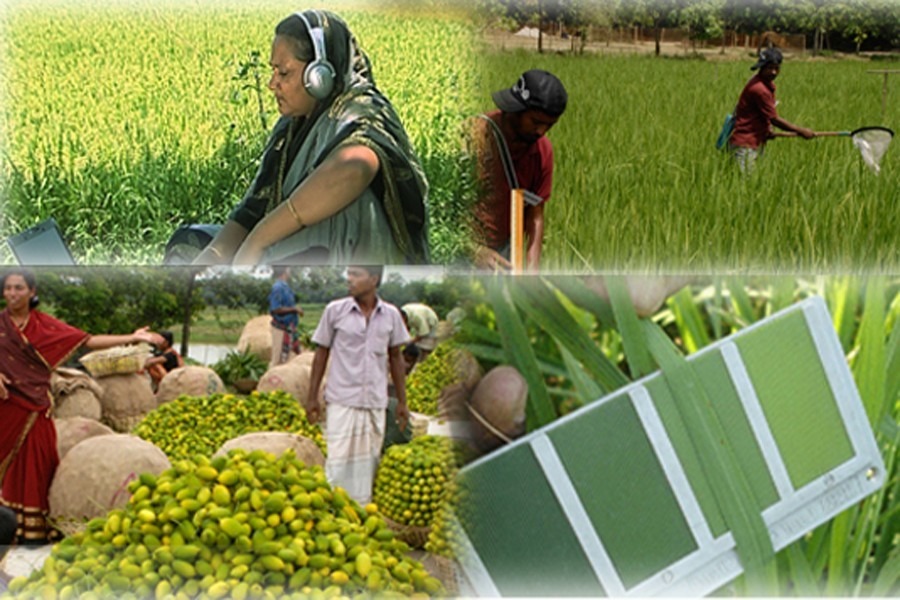
Published :
Updated :

The fall in export of agro-products in the 11 months of the current fiscal year looks drastic if compared with the same period of the previous fiscal. A decline in export of such products from US$1.16 billion to just $795.01 million within a year is highly alarming. Even in the fiscal year 2021, when Covid-19 was yet to slacken its stranglehold, the export of this promising sector crossed the billion dollar mark to $1.03 billion. By no means should the fiscal 2023 be particularly worse than 2021 for international business. True, the first few months after Russia's invasion of Ukraine saw a turbulent global business regime but then there was a gradual turnaround. Concerned here are food items which, unlike luxury or other dispensable commodities, should not lose demand abruptly unless the importers turn to other sources or they themselves start producing the products in question.
To go by the observations made by the Bangladesh Bank (BB), the National Board of Revenue (NBR) and the Comptroller Auditor General (CAG), it is clear that the figures of the previous two fiscal years' exports were somewhat inflated. An official of the CAG is on record, as reported in this paper on Sunday, saying, "Some exporters used to submit fake documents with higher volume of shipment and claim incentives from the government". Thus the export earning was shown higher than the actual figure. Whether prevention of misuse of government incentives alone can explain the sudden fall in export earning is a matter for the authorities to calculate. The report, however, cites slump in global demand also for the items concerned. Notwithstanding the fall in export proceeds from agro-processed items, vegetables and fruits, the three statutory bodies are optimistic that these particular exportable produce and products will bounce back with the elimination of malpractice of production of fake documents.
Yet a few questions beg answers. Are the fake documents submitted a year before responsible for the biggest fall recorded in export of fruits from $5.25 million to a paltry $ 0.98 million within a year? Even if a large portion is a made-up export volume for which the exporters received incentives --- actually public money, they have committed a punishable offence. Will they ever be meted out the punishment they deserve? This is essential in the interest of honesty and strategising the diversification of the export basket on accurate data.
Now it is clear that the companies involved with agro-business want to have their cake and eat it too. They are monopolising agriculture produce by just lending their company brand in packaging. Even they are not engaged in contract farming but they would market their own brands of rice, scented rice, wheat and flour and many more commodities. By this means, they have established their stranglehold on agriculture produce and products---a sure way of controlling market. Is this legally permissible? No wonder, much of the country's high inflation, at a time when most food items have registered price fall in international market, is explainable by this unwelcome oligopoly hold. The measures taken by the authorities to prevent misuse of incentives for agro-product export have zeroed in on one end of the problem, let complementary steps be taken up at the growers' end for protection of their interests.


 For all latest news, follow The Financial Express Google News channel.
For all latest news, follow The Financial Express Google News channel.